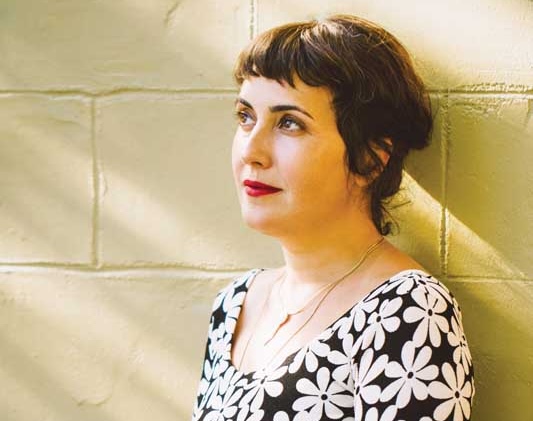As a container, the two-dimensional plane of the book page can’t typically hold enough multitudes for a project like Lauren Markham’s new work of poststructural journalism, A Map of Future Ruins: On Borders and Belonging.
Yet she successfully and unapologetically explodes the boundaries placed on her reportage by the constraints of the form. For example, the journey to fill in the gaps of her own Greek ancestral origin story is inseparable from her coverage of the six Afghan refugees who were arrested and tried for starting the fire that devastated the Moria camp on the Greek isle of Lesbos.
Her journey as an educator of immigrant and migrant children in the East Bay remains inseparable from how mythological concepts of whiteness are often traced to ancient Greek civilization. Questions emerge. How can people valorize supposedly “successful” migration stories when migration itself is being criminalized around the world? How can a bouzouki player sit there in Athens, insulting the refugees, when his own instrument, the bouzouki, is disparaged and treated as a symbol of marginalized immigrants?
“I feel like my book is a work of cubism,” Markham said. “It is trying to look at things from multiple angles. … It’s looking at multidimensions, and sort of trying to put those all in a flat plane, and the flat plane of journalism, and in writing.”
One way to follow A Map of Future Ruins is to start at the beginning, where Markham presents the case of the Moria 6, the Afghans who many believe were innocent. From there, we get the miserable conditions under which the refugees lived, the rise of extreme right-wing anti-migrant politics, how the entirety of Western civilization has been inventing versions of ancient Greece in a quest to justify whiteness, plus larger inquiries into the mechanics of borders and belonging.
The story then unfolds like a map. The reader can trace any trajectory—Greek myths, borders, history or corrupt EU policies—and see where it leads. The trajectories often circle back. Linkages begin to solidify as the craftsmanship emerges. This was not a wild goose chase, with the author trying to make connections where none existed.
“I had to be really dogged and unflinching on two levels,” Markham said. “One, in allowing myself to be in a space of trying to make and feel and narrate connections that I was seeing between past stories and present stories, between the myths within families and the myths of whiteness.”
And then, she had to be relentless in letting herself engage with a new kind of storytelling.
“I also had to be really dogged in making sure that those connections really were there and that they were clear and clearly narrated so that it wasn’t just mushy and misty,” she explained.
A Map of Future Ruins eventually becomes a long-form work of essayistic journalism, showing us ways to narrate the past retrospectively to help make meaning of the present and define the present on our terms. How do we report on current issues, knowing how we understand the past is inseparable from how we frame the current moment? For example, knowing that forced migration implicates every single one of us, regardless of what passport we own or what side of the border we occupy due to our own privilege, how do we, the journalists, even possibly separate ourselves from the story?
“I think that there’s this tension in journalism because we don’t want the ‘I’ of the journalist to crowd the story and get in the way,” Markham said. “But there’s also a question that I became increasingly preoccupied with, hence this book, which is: To what degree is effacing the ‘I’ or erasing the ‘I’ and pretending this ‘I’ doesn’t exist, its own form of deceit or dishonesty?”
Migration is a global issue that penetrates everything else. All a reader has to do is follow the map.
Lauren Markham is in conversation with Julia Flynn Siler at 6:30pm, Monday, March 11, at the Mill Valley Public Library, 375 Throckmorton Ave. For more information, visit laurenmarkham.info/events.








